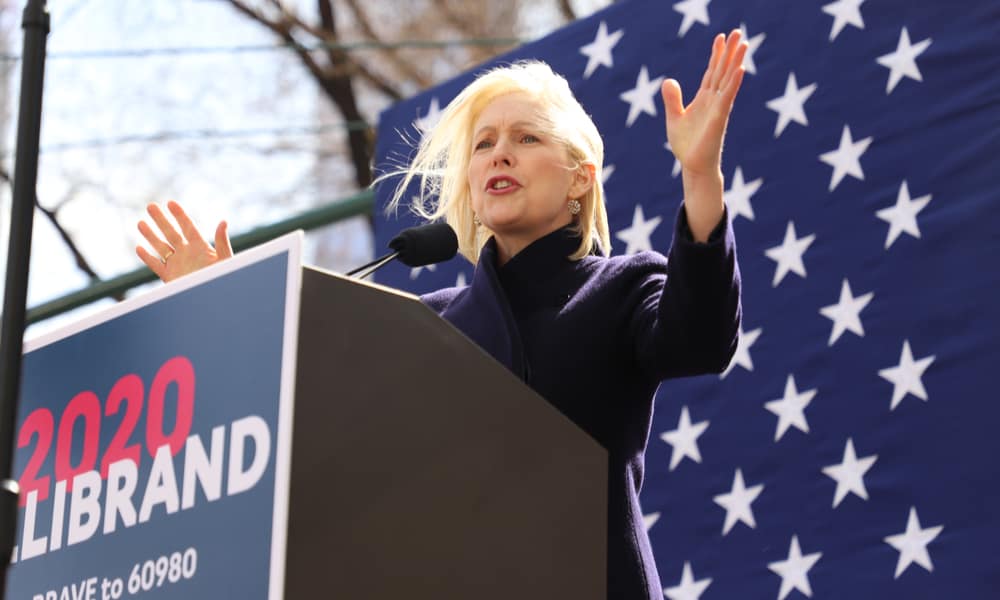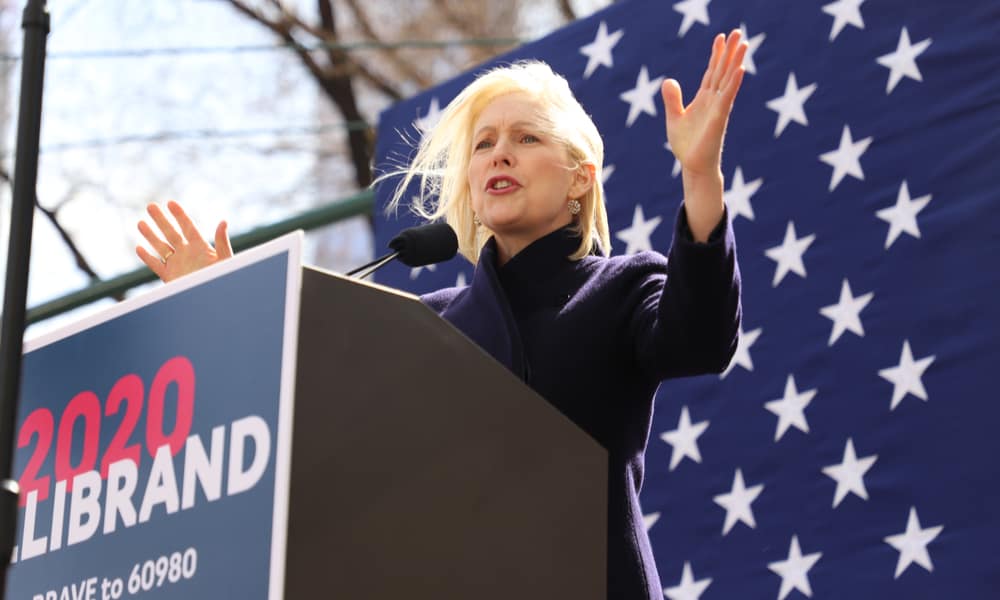
Democratic presidential candidate Sen. Kirsten Gillibrand of New York released a plan for the national legalization of marijuana on Wednesday, saying that she would make the issue a “top priority” of her presidency.
“America’s federal prohibition of marijuana needs to end now,” Gillibrand wrote.
Gillibrand said that the enforcement of cannabis prohibition laws has been harmful and unjust, noting that black Americans are more likely than whites to be arrested for non-violent marijuana offenses, despite numerous studies that have shown usage rates are consistent among races.
“The unfair enforcement of our current marijuana laws is a continuation of the institutional racism that has defined our criminal justice system for decades,” said Gillibrand. “This vestige of the War on Drugs has irreparably harmed too many lives and communities — predominantly black and brown ones.”
She also noted that legalization is a matter of public health, citing the medical uses of marijuana and the potential impact cannabis can have on the continuing opioid crisis in the United States.
“Millions of Americans seek medical marijuana to treat chronic or severe pain — often in an effort to avoid prescription opioids — but access is limited by insurance coverage and availability of medical marijuana dispensaries, even in states where medical marijuana is legal,” Gillibrand wrote. “We should be expanding patients’ access to treatment they need, especially when it helps reduce addiction to dangerous medications.”
Plan Would Deschedule Cannabis
If elected, Gillibrand would act quickly to remove cannabis from the federal list of controlled substances.
“As president, I will immediately deschedule marijuana as a controlled substance, and start working to not only heal the damage done by racist drug laws, but tap into the medical and economic opportunity that legal marijuana offers,” she said.
Writing that “there’s no denying that our application of marijuana laws is wildly unjust,” Gillibrand’s plan also calls for the expungement of federal convictions for non-violent marijuana offenses.
Gillibrand wrote that she would also increase cannabis research by providing additional funding to the National Institutes of Health and the Food and Drug Administration. The plan would expand access to medical marijuana and include a requirement that medicinal cannabis use be covered by private health insurance companies and federal programs such as “the VA, Medicare, and Medicaid.”
Gillibrand’s plan also calls for the complete legalization of marijuana for recreational use and the creation of a legal cannabis industry and “a national process to make marijuana production and consumption clean, safe, and sustainable.” The cannabis industry would be granted access to banking services and the tax rules for marijuana businesses would be normalized.
Social Equity at the Federal Level
The plan to legalize cannabis also includes a federal excise tax on the sale of non-prescription cannabis products. Revenue from the tax would be used to fund services such as education and job training in communities disproportionately affected by past marijuana laws. Businesses in underserved communities would be granted access to capital and technical assistance. Small businesses owned by women and minorities would be prioritized for services from “marijuana-specific” programs.
“Nothing proposed today can ever undo the devastating harm done to generations of communities and families of color by the War on Drugs. But it’s long past time to start making this right,” Gillibrand wrote.
Gillibrand is one of more than 20 Democrats vying for the party’s 2020 nomination for president. Primary season begins next year, with the Iowa caucuses scheduled for February 3, followed by the New Hampshire primary on February 11.











